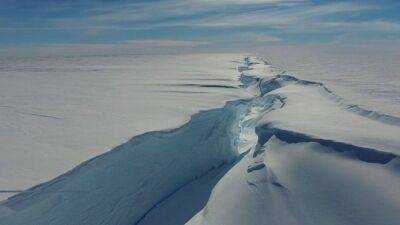'Nurdles' are devastating the environment but they are yet to be classified as hazardous
Nurdles are the raw material of the plastics industry.
Packed and shipped, in their billions, around the world, these lentil sized plastic pellets are then melted down and used as the building blocks for a vast array of items used in our daily lives - from computers and cars, to clothes and drink bottles.
Although the first reported sighting of nurdles on beaches was not until 1970, they have since been found on every continent except Antarctica.
There are now calls for this type of pollution to be taken much more seriously, as their size and persistence make them virtually impossible to remove, once in the environment.
Nurdles are lost at every stage of handling. According to Plastic Soup Foundation, each year, 230,000 tonnes enter our oceans and, within the EU alone, 23 billion nurdles a day end up in the environment.
Making their way down storm drains, into rivers and waterways, and eventually reaching our oceans, they are then distributed by wind and ocean currents to every corner of our planet, but are practically impossible to clean up due to their size.
Nurdles devastate the environment and marine life but, despite being one of the biggest sources of pollution in our oceans, they are often overlooked.
They tend to only hit the headlines when significant spills from containers are lost at sea during transportation.
One such incident occurred in 2021 in pristine waters off the coast of Sri Lanka.
The cargo ship X-Press Pearl caught fire while carrying 350 tonnes of heavy fuel, spilling out nearly 1,700 tonnes of nurdles, and 9,700 tonnes of other plastics and toxic pollutants. With nurdles washing up along hundreds of miles of coastline, and accumulating on beaches up to two metres high, it is the worst marine environmental








